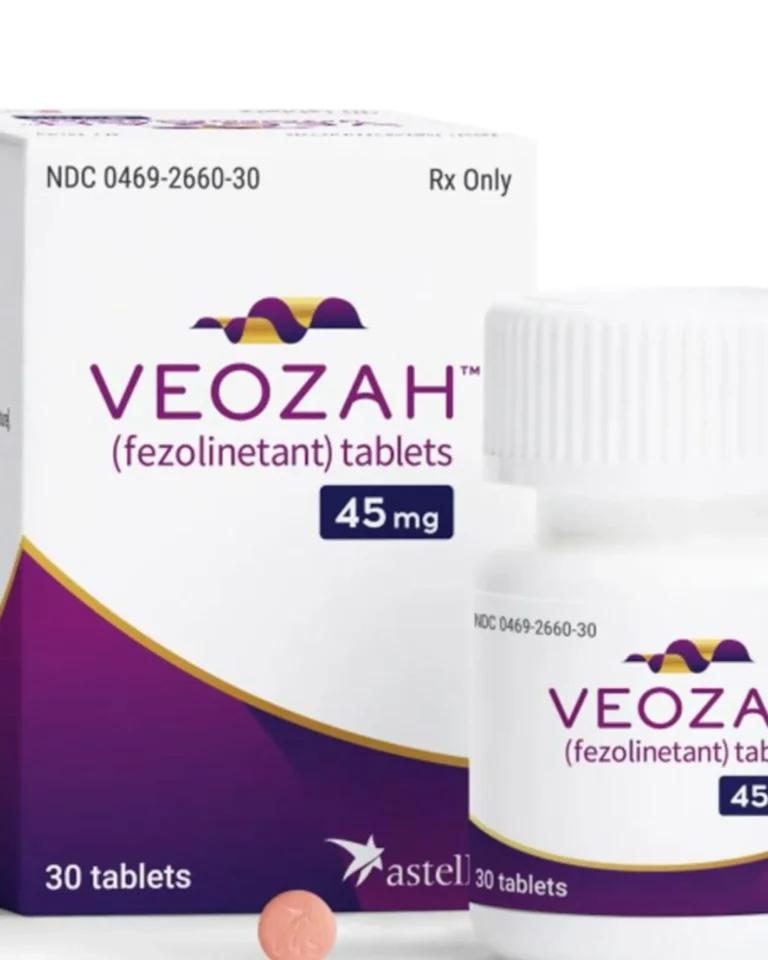
Menopause is a natural and inevitable phase in a woman’s life that marks the end of her reproductive years. It is characterised by the cessation of menstrual periods and a decline in hormone levels, particularly estrogen and progesterone. While menopause is a universal experience for women, the duration and symptoms can vary greatly from person to person. In this comprehensive guide, we will explore the various aspects of menopause, including its definition, causes, symptoms, and when it typically ends.
Understanding menopause: Definition and causes
Menopause is officially diagnosed after a woman has gone 12 consecutive months without a menstrual period. It represents the end of fertility and the transition into a new phase of life. The average age women experience menopause is 52 in the United States, but it can happen anytime between the ages of 45 and 58.
The primary cause of menopause is the natural decline in reproductive hormones, such as estrogen and progesterone. As women approach their late 30s, their ovaries start producing fewer hormones, leading to changes in menstrual cycles and a gradual decline in fertility. Eventually, the ovaries stop releasing eggs altogether, and menstruation ceases.
However, early menopause can also occur prematurely due to certain factors. One per cent of women experience premature menopause before the age of 40, which genetic factors, family history, autoimmune diseases, hysterectomy or unexplained reasons may cause. Additionally, surgical removal of the ovaries (oophorectomy) or certain cancer treatments like chemotherapy and radiation therapy can induce immediate menopause.
The menopause transition: Perimenopause
Before reaching menopause, women go through a transitional phase called perimenopause. Perimenopause begins in a woman’s mid to late 40s and can last for several years before menopause is officially reached. During this time, hormone levels fluctuate, causing irregular periods and various symptoms.
Irregular periods are a hallmark of perimenopause, with cycles becoming longer or shorter, heavier or lighter, and more or less frequent. Some women may experience skipped periods or a month without menstruation, only to have them return. Despite the irregularity, it is still possible to become pregnant during perimenopause, so birth control should be continued until one full year after the last period.
In addition to irregular periods, women may also experience symptoms during the menopause transition. These symptoms include severe hot flashes, hot flushes (also known as vasomotor symptoms), night sweats, mood changes, sleep problems, vaginal dryness, weight gain, urinary tract infections, thinning hair, and loss of breast fullness. Each woman’s experience with perimenopause and its symptoms can vary, with some individuals experiencing mild symptoms while others may find them more disruptive.
Symptoms of menopause and health risks
Once menopause is reached, the symptoms experienced during perimenopause may continue, although their intensity can vary. Common menopause symptoms include irregular periods that eventually stop completely, hot flashes, sleep disturbances, mood swings, vaginal dryness, and a decrease in sexual desire. It’s important to note that not all women will experience every symptom, and the severity can differ from person to person.
Beyond the symptoms, menopause can also bring changes to a woman’s health and the increased risk of certain medical conditions. Two major health risks associated with menopause are cardiovascular disease and osteoporosis. Estrogen, the hormone that declines during menopause, plays a protective role in cardiovascular health. Therefore, the decrease in estrogen levels can raise the risk of heart disease, stroke, and high blood pressure. Similarly, menopause-related hormonal changes can result in bone loss, leading to osteoporosis and an increased susceptibility to fractures.
Other potential health complications after menopause include urinary incontinence, mental health issues such as mood swings and depression, and changes in sexual function. Women need to be proactive in managing their health during and after menopause by making healthy lifestyle changes, seeking medical advice, and considering appropriate treatment options.
Duration of menopause: How long does it last?
The duration of menopause can vary from woman to woman. Perimenopause, the transitional phase leading up to menopause, typically lasts around four years. However, it can range from two to eight years before periods finally cease. The official diagnosis of menopause is made after 12 consecutive months without a period, indicating that the woman has reached the end of the menopausal transition.
It’s worth noting that the symptoms associated with menopause, such as hot flashes, can persist even after the transition has ended. Recent studies have shown that hot flashes can continue for up to 14 years post-menopause. Each woman’s experience with the duration and intensity of menopause can vary, so it’s important to consult with a healthcare provider for personalised guidance and support.
Managing menopause and promoting health
While menopause is a natural process, there are various strategies and treatments available to manage its symptoms and promote overall health. Lifestyle adjustments can play a crucial role in alleviating symptoms and reducing the risk of associated health conditions. Here are some key approaches to managing menopause:
Healthy diet and exercise
Maintaining a healthy diet and engaging in regular exercise can help manage weight gain, reduce the risk of cardiovascular disease, and improve overall well-being. A diet rich in fruits, vegetables, whole grains, lean proteins, and healthy fats can provide essential nutrients and support hormonal balance. Regular physical activity, such as brisk walking, swimming, or strength training, can help strengthen bones, maintain a healthy weight, and boost mood.
Hormone therapy
Hormone therapy, also known as hormone replacement therapy (HRT), involves the use of medications containing estrogen and progesterone to alleviate menopause symptoms. It can be an effective option for managing hot flashes, vaginal dryness, and other discomforts. However, hormone therapy is not suitable for everyone, and it carries potential risks and side effects. It’s important to discuss the benefits and risks with a healthcare provider to make an informed decision.
Alternative and complementary therapies
Many women explore alternative and complementary therapies to manage menopause symptoms. These include herbal supplements, acupuncture, yoga, meditation, and relaxation techniques. While some women find relief from these approaches, scientific evidence regarding their effectiveness is limited. It’s advisable to consult with a qualified healthcare provider before trying any alternative therapies.
Bone health and osteoporosis prevention
Maintaining strong and healthy bones is crucial during and after menopause. Adequate calcium and vitamin D intake and weight-bearing exercises like walking or weightlifting can help prevent bone loss and reduce the risk of osteoporosis. Regular bone density screenings may be recommended to assess bone health and guide treatment options, if necessary.
Emotional well-being and mental health
Menopause can bring emotional and mental health challenges for some women. Mood swings, anxiety, and depression are common symptoms that can impact daily life. Seeking support from healthcare professionals, therapists, or support groups can provide valuable guidance and coping strategies. Additionally, practising self-care, engaging in enjoyable activities, and maintaining strong social connections can contribute to overall emotional well-being.
Conclusion
Menopause is a natural phase in a woman’s life that marks the end of her reproductive years. It is accompanied by a range of symptoms and potential health risks. While the duration and intensity of menopause can vary, there are strategies and treatments available to manage symptoms and promote overall health. By adopting a healthy lifestyle, considering hormone therapy or alternative therapies, prioritising bone health, and addressing emotional well-being, women can navigate through menopause with greater ease and embrace this new phase of life confidently.
Sources
- Menopause – Symptoms and causes – Mayo Clinic
- Postmenopause: Signs, Symptoms & What to Expect
- Menopause basics – Office on Women’s Health
Medical Disclaimer
NowPatient has taken all reasonable steps to ensure that all material is factually accurate, complete, and current. However, the knowledge and experience of a qualified healthcare professional should always be sought after instead of using the information on this page. Before taking any drug, you should always speak to your doctor or another qualified healthcare provider.
The information provided here about medications is subject to change and is not meant to include all uses, precautions, warnings, directions, drug interactions, allergic reactions, or negative effects. The absence of warnings or other information for a particular medication does not imply that the medication or medication combination is appropriate for all patients or for all possible purposes.








